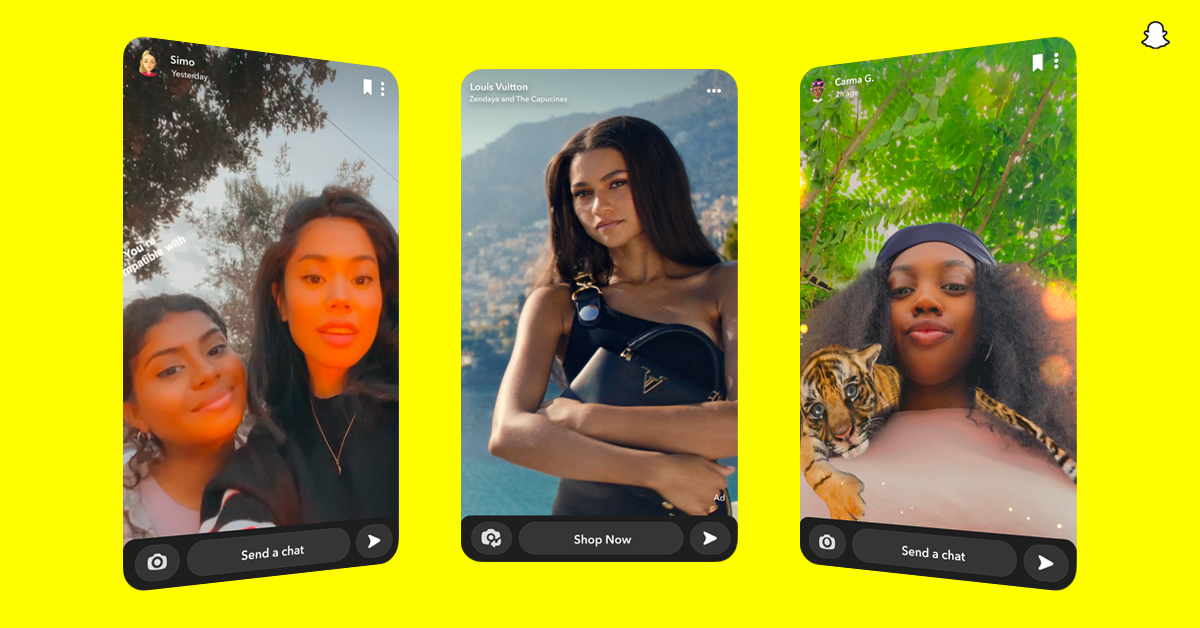Snapchat filters are the new TV ad for Millennials – StartupSmart

Big brands have recognised the power of Snapchat filters as a uniquely Millennial way of getting their message seen.
Don’t know what a Snapchat filter is? Well, firstly, Snapchat is a social media app that allows its users to send messages that disappear after a set time, usually 10 seconds.
Snapchat “stories” can be seen for up to 24 hours. Snapchat filters let users apply visual effects to their snaps, and some of these can be pretty bizarre and a lot of fun. What’s not to like about that if you’re a teenager?
The biggest Snapchat marketing success story so far has been the Mexican food chain Taco Bell’s “Cinco de Mayo” filter, which turns a user’s head into a giant taco shell – frankly, it’s slightly disturbing, but it did receive a phenomenal 224 million views in one day. That’s a lot of exposure for Taco Bell.
The days of mega-budget TV ads as a way to appeal to young people are fading faster than a snap. Things like Taco Bell’s taco head campaign are on the rise.
This has implications for not only big consumer brands like Coca-Cola and McDonald’s that typically target this market, but also for all other consumer-facing businesses, big and small.
What’s behind the shift
Once upon a time, big brands would think nothing of splashing millions on a TV ad. This still happens, especially when aimed at big event exposure like the Super Bowl, but it’s on the wane.
The new marketing mix for these big brands involves a far more balanced and diverse spread of spending on digital channels, including social media such as Facebook, Twitter and Snapchat, as well as other web-based channels.
Big budget TV ads are now part of that mix for some brands, but many others are pumping resources into digital because that’s where their consumers are now.
The Interpublic Group’s Magna Global report on global ad spending trends forecasts digital spending to overtake TV spending by the end of 2017.
Speaking to the New York Times, Vincent Letang, the head of global forecasting at Magna Global, said: “TV global growth is diminishing… In most major developed markets, TV growth is slowing and in some cases stagnating.”
The move from TV to digital channels is part of a wider rationalisation of resources allocation by big companies, which are starting to focus on channels that provide stronger engagement and measurement metrics than traditional media, as they continue to navigate their way from the old media paradigm into digital media.
What the big brands have come to realise is that fewer and fewer people are watching old-fashioned free-to-air TV.
This is especially the case with Generation Y and Millennials, who are more likely to be watching Netflix or some other streaming service if they want traditional TV-style content, or else spending more and more time on social media, possibly watching content on Facebook or YouTube. Or sending each other crazy Snapchat stories.
This means smaller brands in the digital space will now face even more competition as big brands shift their massive budgets into digital over the next year or two.
Smaller brands are going to have to get even more creative and smarter about how they try to get their message out to an easily distracted market of young consumers.
This article was first published on SmartCompany.
Follow StartupSmart on Facebook, Twitter, LinkedIn and SoundCloud.

